Once upon a time there was a maiden in love. “I want to tell my beloved how I feel, but my love might be over the moment I confess it.” Eventually she died, without ever having been able to communicate her feelings. But the man she loved married another woman, and lived happily ever after, without having the slightest inkling that she had ever existed.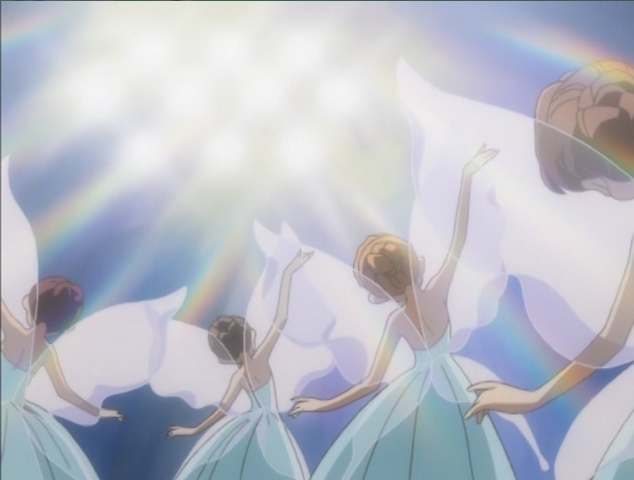
This is the deep breath before the plunge, providing a little breathing space before the buildup to the finale.
For what it is, it’s not bad at all, but I’ve always been a little disappointed for what it isn’t, because it has surprisingly little to do with A Midsummer Night’s Dream. To clarify, it’s based on the ballet rather than the original Shakespeare, but it’s still something of a letdown. The first time I watched the show, I expected some sort of wacky love triangle hijinks from this episode, and was very disappointed when there were only a handful of allusions to the play in the episodic plot.

There are some wonderful character interactions to be had, though! We open with a conversation between Duck and Drosselmeyer (where he’s being more frustratingly cryptic and unhelpful than usual).
Duck: He said that the rest of the heart shards were sealing away the Raven, and also that the heart shards I return to Mytho are causing him a lot of pain.
Fakir: So, what of it? If Drosselmeyer is right, that moment when all of the heart shards are returned will see the Raven’s resurrection – in other words, the start of the battle. Mytho must be prepared for some suffering already. If you aren’t prepared to handle that as well, you should stop being Princess Tutu.
Thank you, Fakir! Duck really needed to hear that (honestly it would have helped for her to hear it earlier). When the battle is being fought within Mytho’s heart, pain for him means that he’s still fighting.
But Fakir’s fighting his own internal battle. He hates himself for not being able to protect Duck with his sword, but he doesn’t know what else to do.
Fakir: Why? Why am I so obsessed with books? No matter what book I open, though, they’ve all had their endings torn out. The Ghost Knight’s book was the same. But I saw the end of that book in my dreams. What does this mean?

Yep. This is a Junichi Sato episode.
Kraehe has a little pas de deux with Mytho while he wrestles with his new feeling of Pride, which has brought out more of the old Prince.
Princess Kraehe: You have Raven’s blood running through your veins just like I do. No one can erase it, no one can stop it. I will love you more deeply than anyone else can. I’ll give you my love.
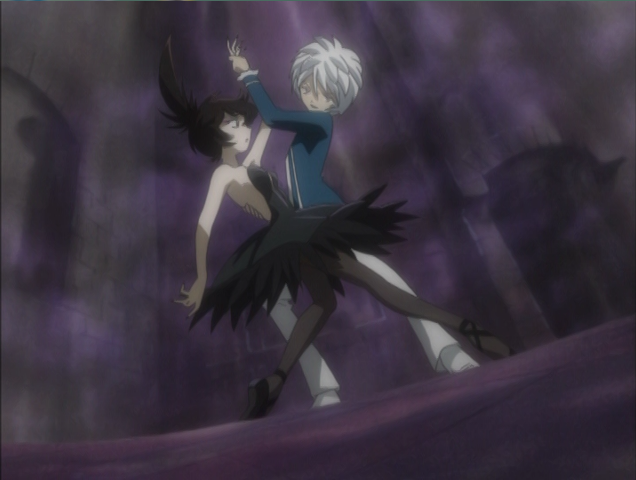
Mytho: You’ll give me your love? How kind. It’s good to know your love suits its natural object, Princess. You ought to love me more, me alone.
That’s the first time Rue has looked scared of Mytho – she’s been shocked or upset by him before, but never scared. At least part of it must be just hearing him speak to her like he does to the “sacrifices”. It seems like up until that point, she thought that was just some sort of act because he didn’t “really” care about those girls like he does about her. Now she’s forced to change her perspective: Either he really does care about all those other girls, or he doesn’t actually care about her.
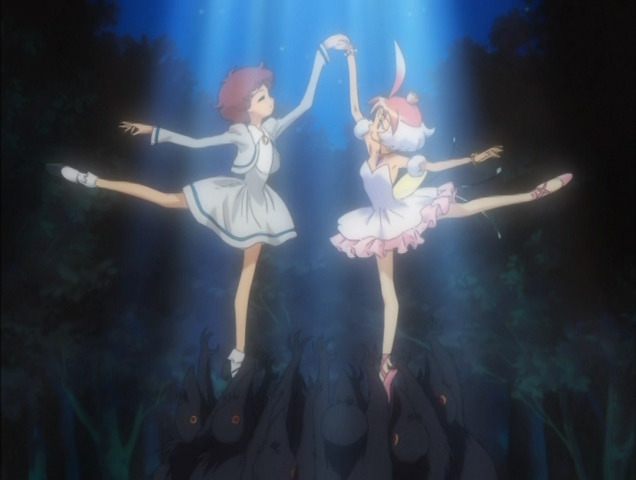
As much as I kept bashing the episodic plot, it is pretty cute and enjoyable in its own small way.
Hermia: Love is a wonderful thing, but it also makes people suffer and be sad, right? So everyone has a hard time saying “I love you”, and they’re all keeping their feelings inside.
Hermia is both likable and relatable – she’s very perceptive of other people’s feelings, but prefers to ignore her own (mostly because she can’t seem to get up the courage to confess her love to Lysander). Unlike Freya, she acts believably flawed, and unlike Pique, Mytho actually has to put in some effort to capture her heart.
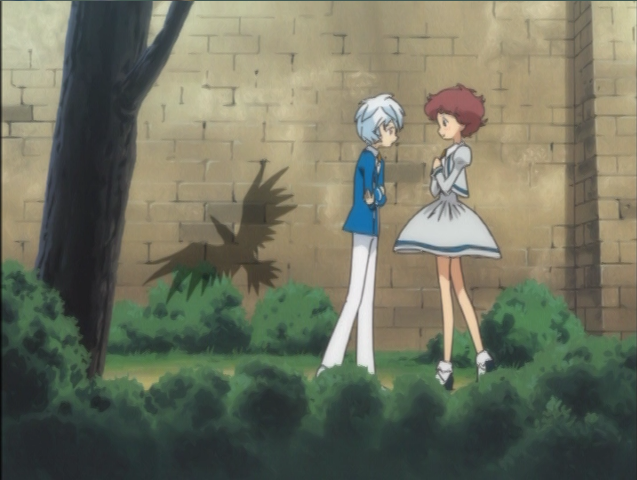
Mytho: You don’t have the courage to confess your own love. You’re delivering other people’s letters just to fool yourself. You make it look like good will, but it’s all for yourself. Let’s be honest. But you know, that’s fine, because everybody else is just using you, too. You might as well focus exclusively on yourself from now on. If you love me, you won’t have to fool yourself anymore. Love only me, and hate everyone else.
Of course Tutu manages to snap her out of it by reminding her of Lysander.
Princess Tutu: It is still love whether you speak it or not. But if that truly is a precious feeling, it would only be cruelty to throw it away. I don’t want you to hide that feeling on your back. I want you to tell him about it. If I were allowed, I would also…if I were only allowed…
This brings the competing ideas of love to the fore. On the one hand is the Raven, who merely uses love as a means to an end (and every “love” has its conditions), and on the other hand is Tutu, who believes that all feelings are worthwhile, even if their expressions can sometimes be hurtful.
Mytho: If the love I am seeking is false love, then all the love in the world must be false!
There are a handful of lines in this episode with Shakespearian wording that just make me smile, even if they don’t really elevate the material.
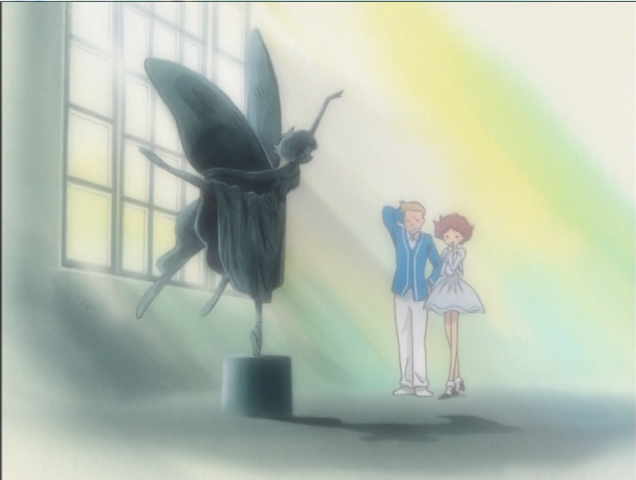
And then Hermia and Lysander actually get together at the end and it is adorable. The end.
Until next time…
One thought on “Episode 19: A Midsummer Night’s Dream”